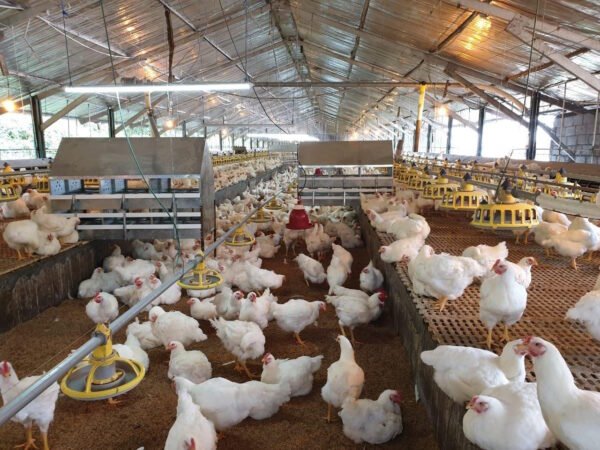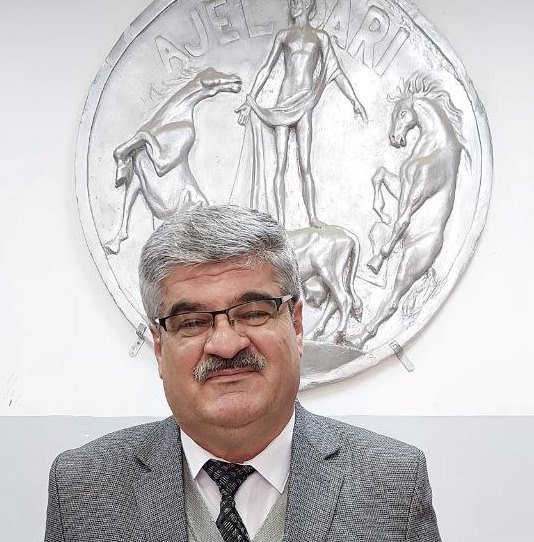تقرير حول تحسين قطاع الدواجن في العراق: الاستراتيجيات الرئيسية للتطوير والاستدامة

Dr. Majed Hameed Al Saegh
المقدمة: يعد قطاع الدواجن في العراق جزءًا حيويًا من الأمن الغذائي في البلاد، حيث يوفر مصدرًا مهمًا للبروتين من خلال اللحوم والبيض. ومع ذلك، يواجه القطاع تحديات مثل ضعف البنية التحتية، وقلة الوصول إلى الموارد، والحاجة إلى تحسين ممارسات الزراعة. يهدف هذا التقرير إلى تحديد الاستراتيجيات الرئيسية لتحسين قطاع الدواجن في العراق، مع التركيز على اختيار المواقع، والأمن الحيوي، وإدارة النفايات، ومكافحة الأمراض، وتطوير ممارسات الزراعة المستدامة.
- اختيار الموقع وتطوير البنية التحتية
1.1 Site Selection: The first step in improving the poultry sector in Iraq is selecting an appropriate site for poultry production. The ideal site should meet the following criteria:
Access to Resources: The site should be close to water sources, electricity, and transportation routes, which are critical for farm operations.
Adequate Land Size: The site should have enough space for poultry barns, waste management facilities, and future expansion.
Environmental Impact Reduction: The site should be free from environmental restrictions, such as flood-prone areas, strong winds, or sensitive ecosystems. It should also be far from densely populated residential areas to minimize conflicts over odors, noise, and waste.
1.2 Infrastructure Development: Investing in appropriate infrastructure is vital for ensuring the long-term success and efficiency of poultry farms. Key components include:
Poultry Barns: Construct barns that provide optimal ventilation, temperature control, and ample space for the poultry. Insulated surfaces and effective ventilation systems will help mitigate the harsh climate of Iraq.
Water and Feed Systems: Establish reliable systems for water supply (such as automatic drinkers) and efficient feed management to ensure proper nutrition and hydration.
Waste Management: The farm should include systems for composting poultry waste or using biogas technology to convert waste into renewable energy.

- ثانیا : الأمن الحيوي وإدارة الأمراض
2.1 Biosecurity Practices: Biosecurity is crucial for protecting poultry farms from disease outbreaks. Comprehensive biosecurity measures must be implemented, including:
Quarantine Systems: Newly introduced poultry should undergo quarantine for a period before being added to the main flock to avoid disease transmission.
Disinfection Stations: Establish hand-washing stations, foot baths, and vehicle disinfection facilities at entry points to prevent the spread of pathogens.
Restricted Access: Access to farm premises should be restricted, and workers must adhere to strict hygiene protocols.
2.2 Disease Prevention and Control: Diseases like Newcastle disease and avian influenza pose significant threats to the poultry industry in Iraq. Disease control strategies should include:
Vaccination: Develop a comprehensive vaccination program targeting common poultry diseases. Collaboration with veterinarians will help ensure appropriate vaccination schedules to prevent costly outbreaks.
Health Monitoring: Regularly monitor flock health and consult with veterinarians to address emerging health issues promptly.
3. Feed and Nutrition Management
3.1 Efficient Feed Systems: Feed costs make up a significant portion of poultry farm expenses in Iraq. To improve feed utilization and reduce costs, poultry farmers should:
استخدام مكونات الأعلاف المحلية: دمج الحبوب والمنتجات الزراعية الثانوية المحلية في غذاء الدواجن يمكن أن يقلل من الاعتماد على الأعلاف المستوردة الباهظة الثمن.
الأنظمة الغذائية المتوازنة: توفير نظام غذائي متوازن يتضمن النسب المناسبة من البروتينات والفيتامينات والمعادن. هذا يحسن صحة الدواجن، ونموها، وإنتاجها من البيض.
أنظمة تغذية آلية: تنفيذ أنظمة تغذية آلية لضمان توزيع الأعلاف بشكل متسق وتقليل الفاقد.
- إدارة النفايات والاستدامة
4.1 Waste Management Strategies: Poultry farms produce large amounts of waste such as manure, feathers, and dead birds. Proper waste management practices are essential for sustainability and environmental protection:
تسميد فضلات الدواجن: يمكن تسميد فضلات الدواجن واستخدامها كسماد عضوي للزراعة، مما يقلل من الحاجة إلى الأسمدة الكيميائية ويحسن صحة التربة.
إنتاج البيوجاز: يمكن تنفيذ أنظمة البيوجاز التي تحول نفايات الدواجن إلى طاقة متجددة يمكن أن تساعد في تشغيل العمليات الزراعية وتقليل انبعاثات الميثان.
4.2 Reducing Environmental Impact: Efforts to reduce the environmental impact of poultry farms should include:
Water Conservation: Use water-saving technologies and recycle water within the farming system to reduce consumption, especially in water-scarce areas of Iraq.
Energy Efficiency: Install energy-efficient systems, such as solar panels and energy-saving ventilation systems, to reduce operational costs and the environmental footprint of the farm.
- التدريب وبناء القدرات
5.1 Workforce Training: Training and education are essential for improving the productivity and sustainability of poultry farms. Farmers should:
Attend Workshops and Seminars: Participate in workshops focused on modern farming techniques, biosecurity, and disease prevention.
Adopt Best Practices: Farmers should adopt best practices in poultry management, including nutrition, housing, and disease control, to ensure high productivity standards.
5.2 Collaboration with Experts: Collaboration with veterinarians, agricultural consultants, and research institutions can provide valuable insights and technical support to improve farming practices in Iraq’s poultry sector.
- الوصول إلى الأسواق وتطوير سلسلة القيمة
6.1 Improving Market Linkages: Poultry farmers in Iraq should focus on building strong links with local and international markets to ensure demand for their products:
Market Research: Understanding local consumer preferences for poultry products (e.g., meat vs. eggs) and identifying areas with supply shortages can help farmers target the right markets.
Value-Added Products: Farmers should consider producing value-added products, such as processed chicken or eggs, which can command higher prices.
6.2 Establishing Cooperative Networks: Forming cooperatives with other poultry farmers can offer collective benefits such as bulk purchasing of feed and equipment, access to training, and shared marketing resources. This can enhance farmers’ negotiating power and reduce costs.
- دعم الحكومة والتوصيات السياسية
7.1 Regulatory Framework: The Iraqi government should establish and enforce clear laws to regulate poultry farms to ensure food safety, animal welfare, and environmental protection. These laws should cover:
Land Use: Zoning laws that designate areas suitable for poultry farming.
Biosecurity: National standards for biosecurity practices that poultry farms must adhere to.
Environmental Standards: Laws governing waste management, water use, and emissions.
7.2 Financial Support and Incentives: The government can support the poultry sector by offering financial incentives such as subsidies for equipment, low-interest loans, and grants to adopt sustainable farming practices. These measures will help reduce the burden of initial investment and encourage farmers to modernize their operations.



